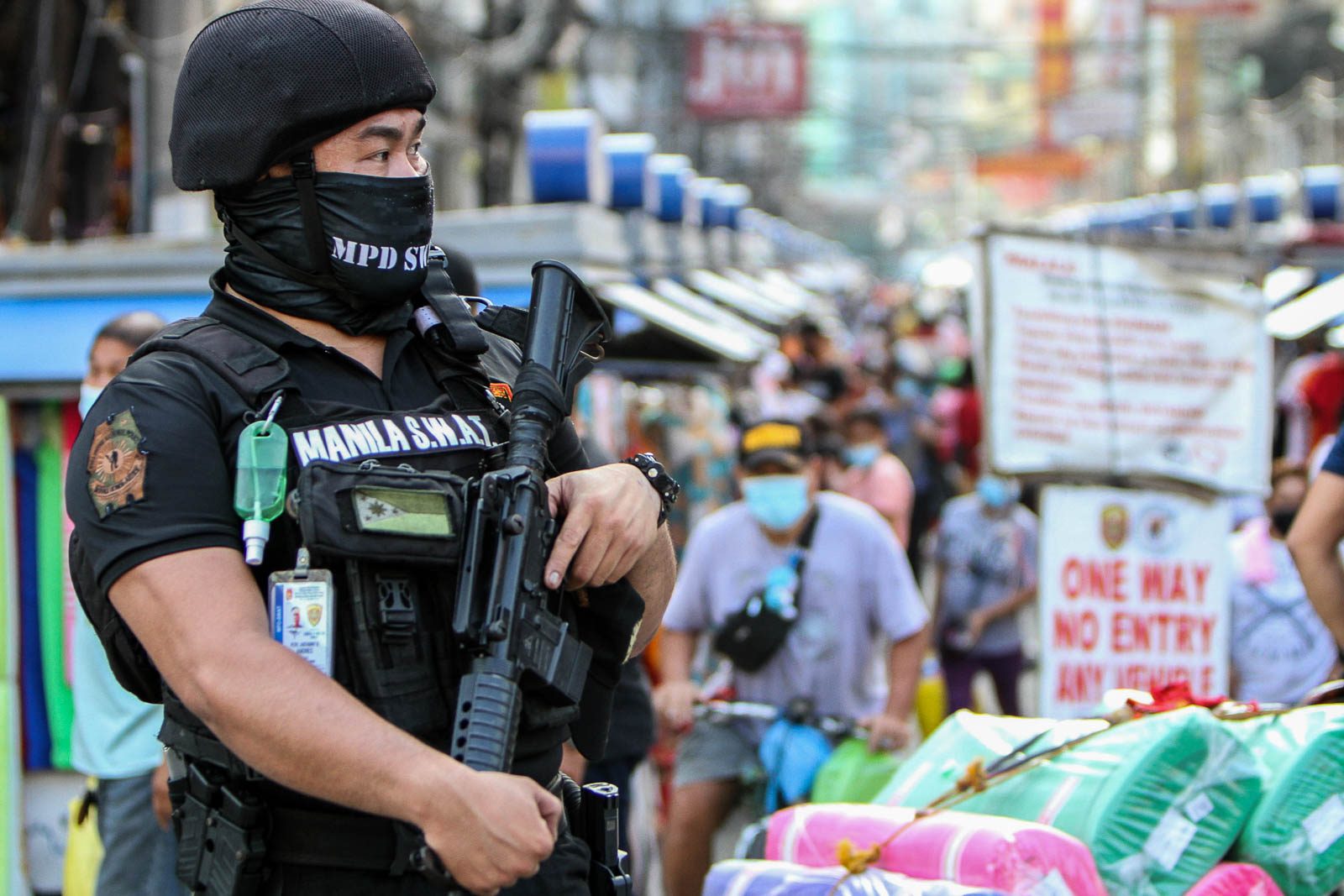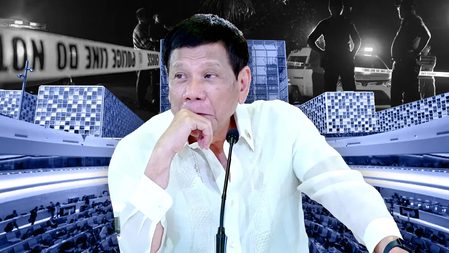SUMMARY
This is AI generated summarization, which may have errors. For context, always refer to the full article.

MANILA, Philippines – Under Philippine laws, the Philippine National Police (PNP) and the Armed Forces of the Philippines (AFP) are tasked with protecting the archipelago during times of conflict.
Under the Duterte administration, the public had a different perspective on these security agencies, particularly the national police. As one of his campaign promises, Duterte promised to end criminality and illegal drugs through a drug war led by the PNP.
Thousands have lost their lives because of the bloody drug war. There were irregularities reported, such as killed drug personalities, whom police claimed fought back (“nanlaban”). Innocent people were also killed during those bloody operations.
Controversies aside, what is really the mandate of the PNP?

PNP’s mandate
The PNP was established under Republic Act (RA) No. 6975 or “An Act Establishing the Philippine National Police under a reorganized Department of the Interior and Local Government (DILG).” The PNP is directly under the supervision of the DILG.
According to the national police’s website, the PNP believes in three philosophies: service, honor, and justice. Under its mandate, police have the responsibility to enforce laws, and to prevent and control crime.
One of the other mandates of the PNP is to observe peace and order in the country and ensure public safety. The PNP is also mandated to protect the internal security of the Philippines with the help of communities.
On their website, the PNP stated that they have other mandates. They are:
- Use the powers vested in them by the Constitution and other laws.
- Detain an arrested person not beyond what is prescribed by the law.
- Enforce laws and regulations on gun and explosives control.
- Supervise trainings and operations of security agencies.

What do the laws say?
- Under the 1987 Constitution. The Philippine Constitution states that the country should operate a police force with a national scope and civilian characteristics. The PNP, as stated by the supreme law of the land, is under the National Police Commission (Napolcom). Local chief executives should oversee smaller police units.
- Not similar to the military. Section 2 of RA No. 6975 clearly states that the PNP should have a national scope and characteristics similar to civilians or ordinary people. The law emphasizes that these things should be strongly enforced.
- What do “civilian characteristics” mean? The community should see police personnel and officers as part of their community. They should not be regarded like the military – police should be closer to people. The same principle is supported by RA No. 6975, which also states that there should be no PNP element that will come from directly from the AFP or active members of the military.
- Under the Napolcom. In the Constitution, it was stated that the Napolcom, under the DILG, would supervise the PNP. The commission audits the accomplishments, activities, and facilities of the national police. Aside from this, the Napolcom also crafted a manual for the PNP, which includes recruitment and selection of police personnel, promotion, and even retirement.
- First members. The PNP was established when the Philippine government merged the Integrated National Police (INP) and the Philippine Constabulary (PC) years after Martial Law. This means that the first few members of the PNP came from the INP and PC. Aside from this, there were also other personnel who were recruited from the Philippine Army, Philippine Navy, Philippine Air Force, and Philippine Coast Guard.
- Relationship to the AFP. The PNP and AFP share a deep relationship. Under the RA No. 8551 or the “Philippine National Police Reform and Reorganization Act of 1998,” the PNP was mandated to enforce laws, while the AFP protects national security. The PNP can also assist the AFP in fighting insurgency and rebellion in the country.
– Rappler.com
You can access the Filipino version here.
Add a comment
How does this make you feel?

There are no comments yet. Add your comment to start the conversation.